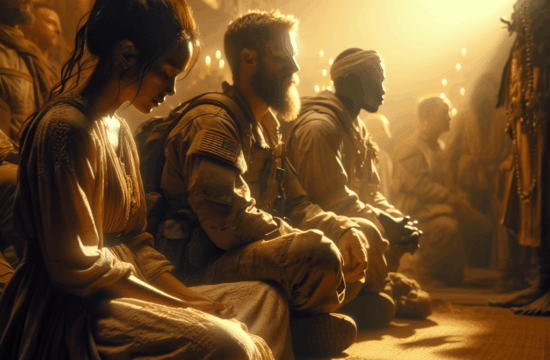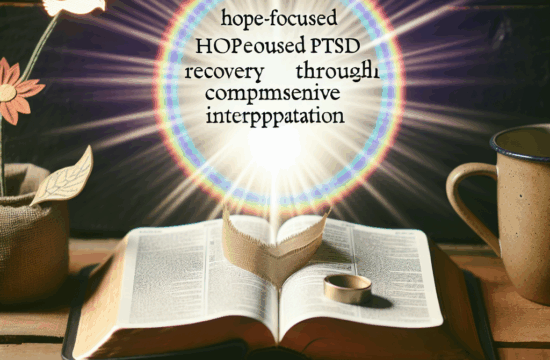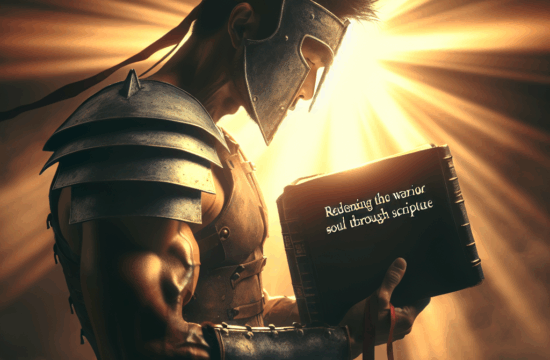==> Thank you for reading this post! Click Here If you are looking for support and Victory over PTSD.
Understanding PTSD
What Is PTSD?
So, diving into the nitty-gritty of PTSD, or Post-Traumatic Stress Disorder, it’s important to recognize that it’s a serious mental health issue. It often happens after someone has been through or witnessed a traumatic event. For military veterans, this can mean combat experiences, accidents, or any sort of violent event. It’s like the mind trying to process trauma but getting stuck in a loop.
People with PTSD might face a plethora of symptoms: flashbacks, anxiety, nightmares, and severe emotional distress. Sometimes, it can feel like an unbearable weight that just won’t lift. Understanding these symptoms is the first step in seeking help and support.
For veterans, the personal battles fought can sometimes be more daunting than those faced on the battlefield. That’s why I think it’s crucial for PTSD to be openly discussed and for veterans to know they aren’t alone in their struggles.
Common Symptoms
Symptoms of PTSD can vary from person to person, but there are common threads. You might find yourself feeling irritable or experiencing outbursts of anger. Trust me, I’ve seen veterans express feelings that they can’t pinpoint, but they are all part of this complex mental scenario.
Sleep disturbances are another biggie. Many veterans I’ve spoken to have shared their struggles with insomnia or restless nights. This can often exacerbate other symptoms, creating a vicious cycle that’s tough to break.
Also, let’s not forget the feelings of alienation that often creep in. Veterans may alienate themselves from family and friends, which only adds to the struggle of coping with PTSD. Everyone needs a support system, and it’s vital that veterans know this too.
The Impact of PTSD
The impact can stretch out like ripples in a pond, affecting not just the individual but their loved ones as well. I’ve seen countless families impacted by a veteran’s struggles with PTSD. It’s heartbreaking because those who love them feel helpless sometimes.
PTSD can also have a significant impact on daily life. Simple things, like holding down a job or engaging in social activities, can become overwhelming challenges. Many veterans leave the workforce or withdraw from community life because of the symptoms.
But here’s the thing — awareness is key. The more we talk about the impact of PTSD, the better we can support those who are struggling. Open conversations foster understanding, and that’s often the first step toward healing.
Seeking Help
Professional Support
I can’t stress enough how vital it is for veterans to seek professional help. Engaging with a therapist who specializes in trauma can make all the difference. I’ve seen firsthand how powerful therapy can be for someone dealing with PTSD.
Therapy isn’t just about sitting in an office and unloading your feelings; it’s about finding strategies to cope and heal. Techniques like Cognitive Behavioral Therapy (CBT) can provide veterans tools to change negative thought patterns.
Please, don’t underestimate the power of connection that happens in therapy sessions. Talking to someone who understands is often the best heart-to-heart a veteran can have.
Medication
Now, while therapy can work wonders, there are times when medication can be a useful addition to the healing process. Doctors often prescribe antidepressants or anti-anxiety medications to help with symptoms. These can create a more stable base for someone to build upon in therapy.
But finding the right medication can be a journey. It takes time and patience, and it’s crucial for veterans to have open dialogues with their healthcare providers to find what works best for them.
Let’s not forget about the stigma surrounding medication, though. It’s important to break that barrier and remind folks that seeking medical support is just as valid as seeking psychological help.
Support Groups
Support groups can also play an extraordinary role in recovery. I’ve participated in and facilitated a few support groups, and I’ve observed the healing power of shared experiences. Hearing from others who have walked similar paths can create a profound sense of validation.
These groups can offer a safe space not just for sharing feelings but also for learning coping strategies. It fosters a community where veterans can find that they are not alone in their struggles.
Online support groups have also exploded in popularity, and they can be particularly helpful for those who might feel uncomfortable attending face-to-face meetings. The beauty of community is that there’s always someone to lean on, no matter the format.
Building a Support Network
Family and Friends
Having a solid network of family and friends can be a game changer when coping with PTSD. I can’t stress enough how valuable it is for veterans to lean on their loved ones. It’s okay to lean into that support — love is a healing force.
However, it’s essential for family and friends to be educated about PTSD so they can provide proper support. Many folks don’t know how to help, and being informed can bridge that gap.
Setting realistic expectations is also crucial. It helps relationships grow stronger as everyone learns to communicate openly about needs and feelings. A supportive environment is the key to hard conversations.
Get Support and Help with Recovery! Visit us for more Information and Support
Community Resources
Beyond just family, communities often have valuable resources for veterans. Local organizations, care centers, and veteran affairs offices can provide assistance. I’ve found that some organizations offer counseling services, job support, and social activities designed for veterans.
Particularly beneficial are programs specifically designed for veterans dealing with PTSD. These can foster an understanding among participants, reminding them they’re not alone. Often, these services are free or low-cost, making them accessible for everyone.
I encourage veterans to reach out and explore what’s in their community. Building a network with local resources can make a significant difference in the healing journey.
Peer Support
Finding a buddy who’s been through the same ordeal can be wildly helpful. Peer support pairs veterans with others who have similar experiences, creating a powerful connection that’s sometimes hard to find in traditional settings.
This relationship can be a lifeline. Veterans can talk about experiences and tactics for coping without feeling judged. It’s a genuine exchange of understanding that makes a big impact on recovery.
Sometimes it’s just about knowing that someone gets it, right? That connection can ignite hope and motivate veterans to take proactive steps toward healing.
Promoting Resilience
Healthy Coping Mechanisms
When it comes to battling PTSD, developing healthy coping mechanisms is essential. I’ve seen veterans find peace through things like exercise, meditation, or creative outlets like art and music. These activities can be fantastic tools for managing stress and anxiety.
Staying active, even if it’s just going for a walk, helps release those feel-good endorphins. It sounds cliché, but really getting those bodies moving can help clear the mind too.
Encouraging veterans to explore new hobbies or work on projects can also provide an incredible sense of achievement and distraction from their stressors.
Mindfulness and Meditation
Mindfulness is another powerful tool I’ve seen being used. Practicing mindfulness or meditation can create a sense of calm and help veterans become more aware of their thoughts and feelings without judgment. It’s about being present.
Many veterans might initially scoff at the idea, but even a few minutes a day can yield substantial benefits. I remember the first time I tried it, and it felt so weird, but it definitely created a sense of peace that I hadn’t felt in a while.
Experimenting with different mindfulness practices, whether it’s guided meditation or simply focusing on breath, can help veterans find their groove. It’s individual, and the beauty of practice is discovering what fits best.
Celebrating Small Wins
Last but not least, celebrating small wins along the way can make a world of difference. Sometimes in the thick of it, you can forget to acknowledge how far you’ve come. I’ve learned to take a step back and appreciate even the smallest progress, like getting out of bed on a tough day.
This practice can encourage a positive mindset and motivate continued effort in recovery. Acknowledging the little victories keeps the spirits up, and those small steps often lead to bigger ones.
So, whether it’s completing a difficult task or simply checking in with a friend, taking the time to recognize and celebrate those moments is crucial in the healing process.
FAQ
What are the main symptoms of PTSD for veterans?
The symptoms can include flashbacks, severe anxiety, nightmares, and feelings of isolation or irritability. Each veteran’s experience can vary, but these symptoms are quite common.
How do I find professional help for PTSD?
You can start by talking to your primary care doctor or reaching out to veteran services to find therapists who specialize in PTSD treatment. Many veterans’ organizations also provide resources for mental health support.
What role do support groups play in recovery?
Support groups allow veterans to connect with others who have shared experiences. They can provide encouragement and understanding that is hard to find elsewhere, fostering a sense of community.
Are there any self-care practices that can help?
Absolutely! Engaging in physical activity, practicing mindfulness or meditation, and even pursuing creative hobbies can be excellent forms of self-care that help manage PTSD symptoms.
How can family and friends support veterans with PTSD?
Families can provide emotional support by offering a listening ear and encouraging professional help. It’s also crucial for them to educate themselves about PTSD to better understand what their loved one is experiencing.













